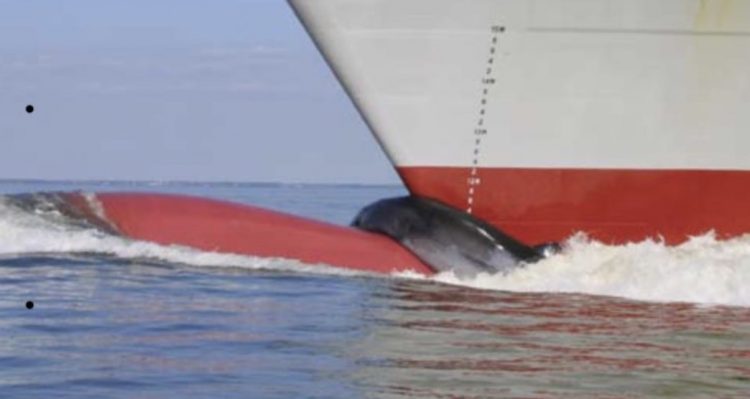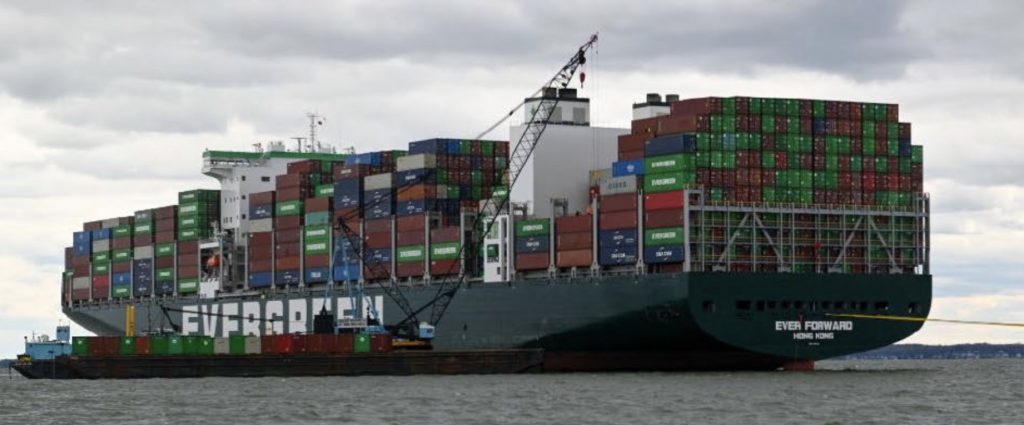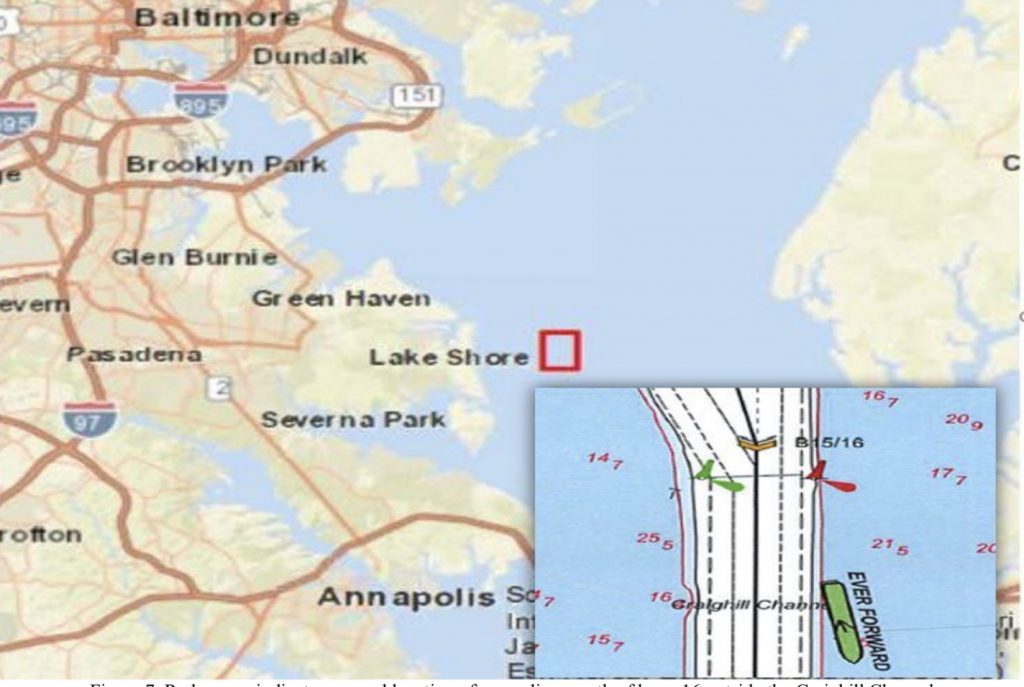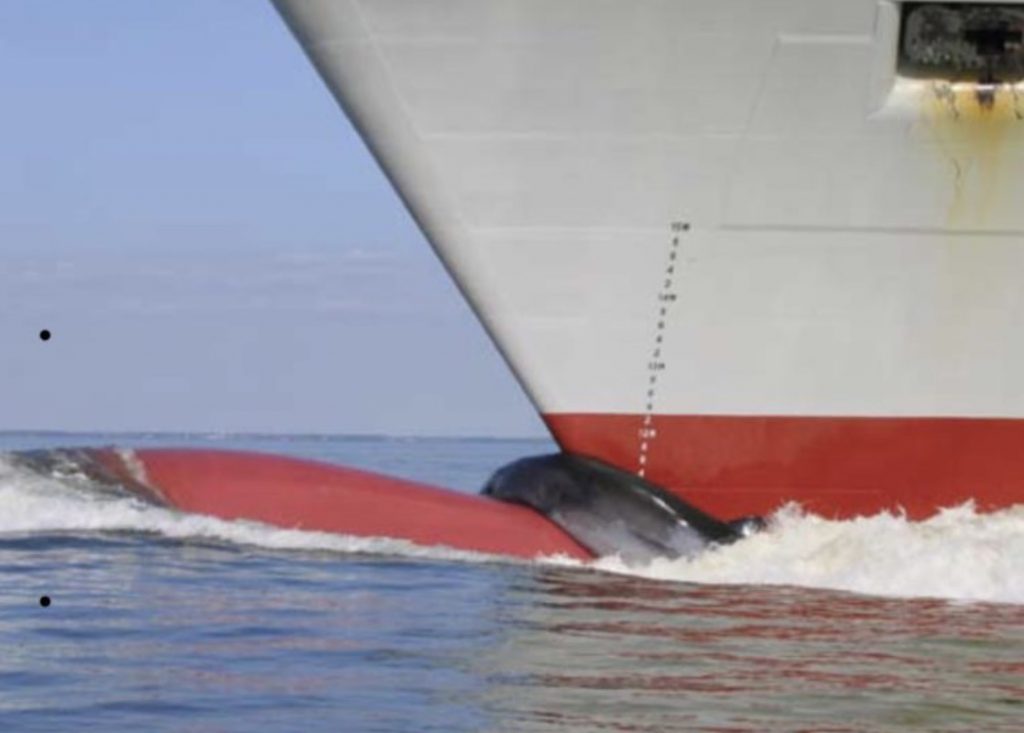Environment
Short Takes
Georgia’s new data center rule increases local controlDecember 1, 2025

By David Pendered
Dec. 11 –A ship’s pilot distracted by his cell phone grounded a container ship on a sandbar in the Chesapeake Bay. The incident shows how human error adds to the vulnerability of North American right whales in busy shipping areas such as Savannah.
The U.S. Coast Guard’s Findings of Concern released Dec. 6 following the investigation into the March 13 grounding reports the state-licensed pilot was so busy talking and texting on his cell phone that he failed to issue commands necessary to keep the vessel in the channel. The ship’s bridge crew was cited for its failure to keep the pilot focused on the task of steering the vessel, according to the Coast Guard’s Dec. 1 report.
The vessel was headed from Baltimore down the Chesapeake Bay to Norfolk when she plowed onto a sand bar at 15 mph. The pilot had failed call for a proper turn at one of the best-known turns at the gateway to the Port of Baltimore, the Craigshill Channel, which is part of the main Patapsco River/Baltimore channel.

The Coast Guard’s Dec. 1 report observes:
Pilots in Maryland are licensed by the state. Ship owners routinely have pilots brought aboard vessels to provide the expert local knowledge needed to navigate tricky waters. However, the pilot’s presence does not absolve the ship’s crew of its responsibilities, according to the Dec. 1 report.
Human error such as the grounding of the Hong-Kong flagged Ever Forward is a difficult matter to regulate. But regulation of the speed of commercial vessels is the major thrust of efforts to protect North American right whales as they travel between their summer home in Canada and winter calving grounds off the coast between Savannah and Jacksonville.

The goal is to curb a leading cause of injury and death of right whales – being hit by a ship, according to multiple studies including this NOAA report. The hope is that if vessels are slowed, the crew will have time to avoid running over right whales.
The grounding of the ship in the Chesapeake Bay reminds of the importance of human awareness when operating vessels in areas populated by right whales, which means much of the East Coast.
On Dec. 6, the same day the Coast Guard released its findings in the Chesapeake Bay grounding, the non-profit ocean-conservation organization Oceana asked the U.S. Commerce Department to act now to protect right whales. Oceana asked Commerce to implement proposed safety measures during the current calving season while proposed modifications to the vessel speed rule remain under review.
The grounding of the Ever Forward resulted in environmental impacts. To float the vessel, 206,280 cubic yards of bay bottom were dredged away from the hull of the boat. This helped free the vessel, along with the removal of 505 containers to lighten the ship, according to the Coast Guard reports. The ship was stuck 35 days.
Since the grounding, the ship has been visiting ports along the East Coast and spent almost 17 days at Savannah.
The Ever Forward arrived at Savannah Nov. 16 and spent almost 17 days at anchor, waiting for a berth in the Savannah port after traveling from Charleston, S.C. She entered the Savannah port Dec. 1 and left Dec. 3 on a four-day trip to the Panama Canal. The Ever Forward now is in the Pacific Ocean, enroute to Quingdao, China and sailing at almost 19 mph, according to a report of her movement by Vessel Finder.

0